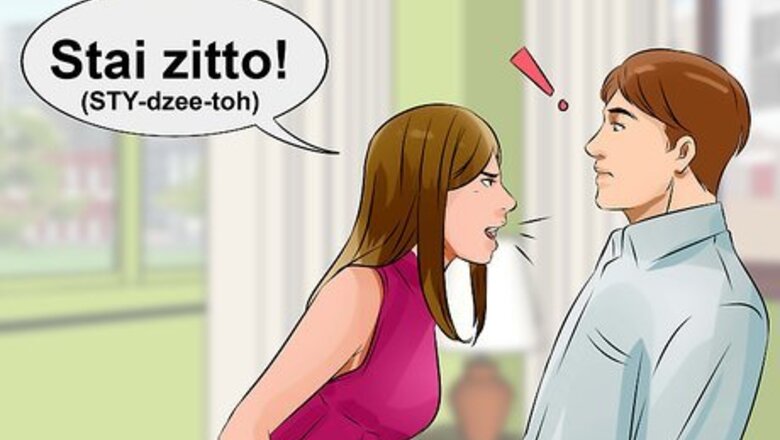
views
Saying Shut Up as a Command
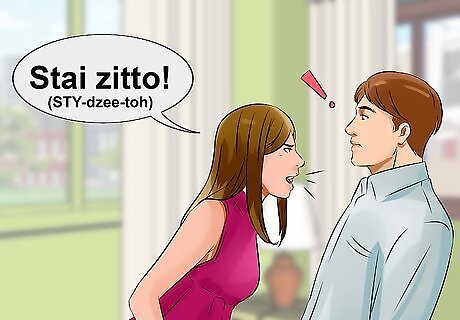
Say shut up to a man in Italian. Stai zitto! The phrase is pronounced STY-dzee-toh. Put the emphasis on the first syllable. This phrase will come across as rude to some because it’s an order. It’s also an informal way of speech, so it shouldn’t be said to, say, a teacher. It’s a direct command.
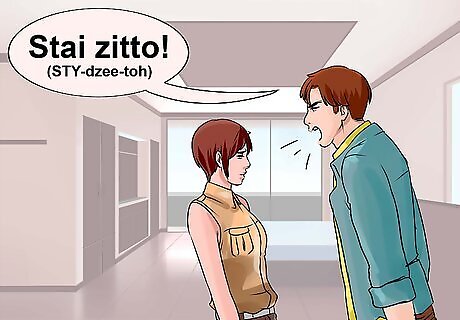
Say shut up to a woman. This version is Stai zitta! It’s pronounced STY-dzee-tah. Put the emphasis on the first syllable. Use this term if you are telling a single person to shut up, not several people.
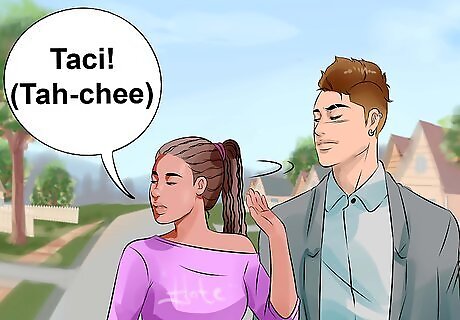
Use slang words to say shut up. A more colloquial way of saying be quiet is “Taci!” Pronounce the word “Tah-chee.” It’s from the verb tacere, which means to go quiet. The word taci has been decreasing in popularity, though. Sometimes people will shorten Stai zitto to zitto. Zitto’s plural is ziti and zitta is feminine. Say Chiudi la bocca! This phrase means shut your mouth. Pronounce it kyoo-dee-LA-BOH-kah. Put the emphasis on the third and fourth syllables. This is considered an impolite way to say shut up because it literally means “shut your trap.” Some dictionaries label it a vulgar term and say it means shut your mouth or shut your face.
Pronouncing Italian Words Correctly
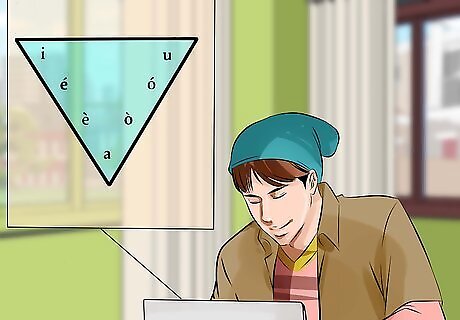
Use a pronunciation guide. Before you try to say Italian words, take some time to understand how vowels and consonants sound in Italian. You can find many of these pronunciation guides online. There are only 7 vowel sounds in Italian. When two or more vowels occur in a row, pronounce them separately. Some vowel sounds depend on the part of Italy you’re in. Most words in Italian are phonetic, meaning they are pronounced the way they are written. Most consonants sound similar to the way they are pronounced in English. The exceptions are the consonants c and g. These vary depending on the letters that follow them. Pronounce double consonants more forcefully than single consonants.
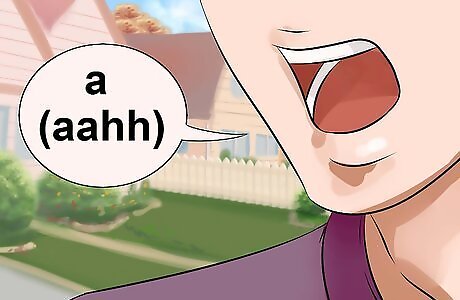
Speak expressively. Italian is a very emotional language. Use your hands. Let your emotions out. Let them be wild, bold and expressive. The key is to say Italian vowels short and clear. Don’t draw them out. In English, you may end with a gliding sound. Italian is more abrupt. Open your mouth wide to form a big and round vowel sound. For example, the letter "a" should be spoken with a wide open mouth. Say “aahh!”
















Comments
0 comment